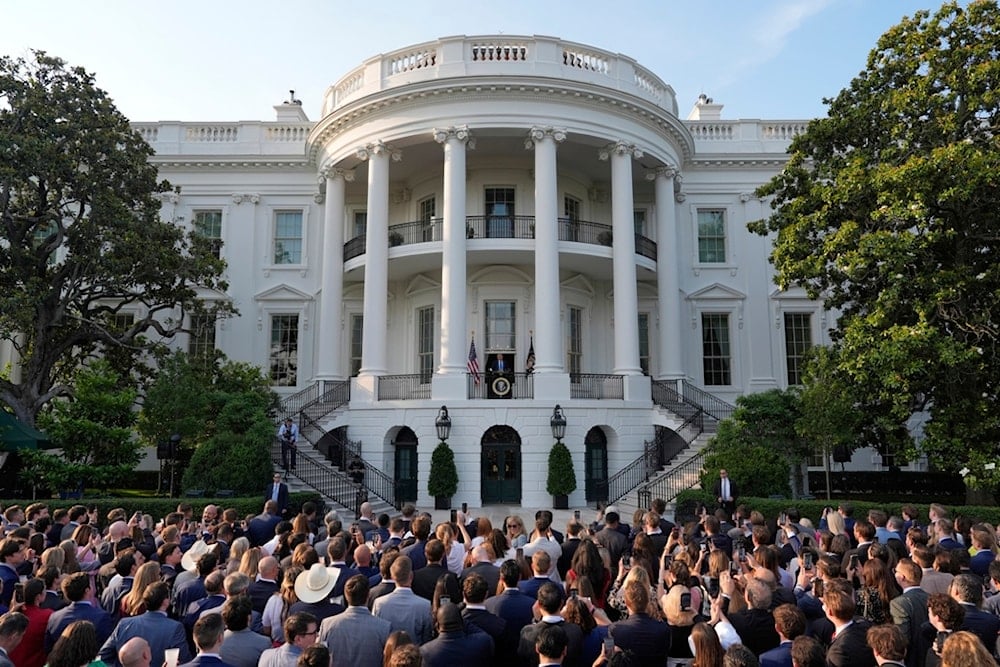Federal court backs partial White House ban on Associated Press
A US court reinstates most of Trump's White House ban on the Associated Press, igniting concerns over press freedom and First Amendment rights.
-

US President Donald Trump speaks during a summer soiree on the South Lawn of the White House, Wednesday, June 4, 2025, in Washington (AP Photo/Alex Brandon)
A panel of judges from a US federal appeals court ruled on Friday that most elements of the White House's ban on the Associated Press (AP) could remain in effect, dealing a significant setback to the news agency and igniting concerns over the state of press freedom in the United States.
Press freedom advocates are closely monitoring the case for potential precedent-setting implications, particularly regarding how far government institutions can go in restricting journalistic access based on editorial positions or language choices.
The AP filed a lawsuit in February against three officials from the Trump administration, claiming that it had been unconstitutionally barred from covering presidential events, including Oval Office meetings and Air Force One press pools. The agency cited violations of its First Amendment rights.
The White House defended its decision by accusing the AP of refusing to adopt the term "Gulf of America" instead of "Gulf of Mexico" in its reporting, a change the agency rejected in order to avoid confusing its international readership.
The administration subsequently barred AP reporters from entering sensitive presidential spaces.
First Amendment arguments and legal timeline
In April, a federal judge initially sided with the AP, asserting that the government could not exclude journalists from events based on viewpoint discrimination. However, the Trump administration swiftly appealed the decision.
The latest ruling allows most of the White House’s restrictions to be reinstated while the legal battle continues.
The panel of three judges, two of whom were appointed by Trump, determined that exclusive locations such as the Oval Office and Air Force One are not covered by First Amendment protections. However, they upheld the lower court’s decision that broader-access areas like the East Room must remain open to the Associated Press.
In a statement, the AP expressed disappointment, saying it is currently reviewing its options. White House press secretary Karoline Leavitt, in contrast, hailed the decision as a victory.
“As we've said all along, the Associated Press is not guaranteed special access to cover President Trump in the Oval Office, aboard Air Force One, and in other sensitive locations,” she wrote on X.
Read more: Trump says Musk has 'lost his mind', dismisses peace offering

 3 Min Read
3 Min Read










